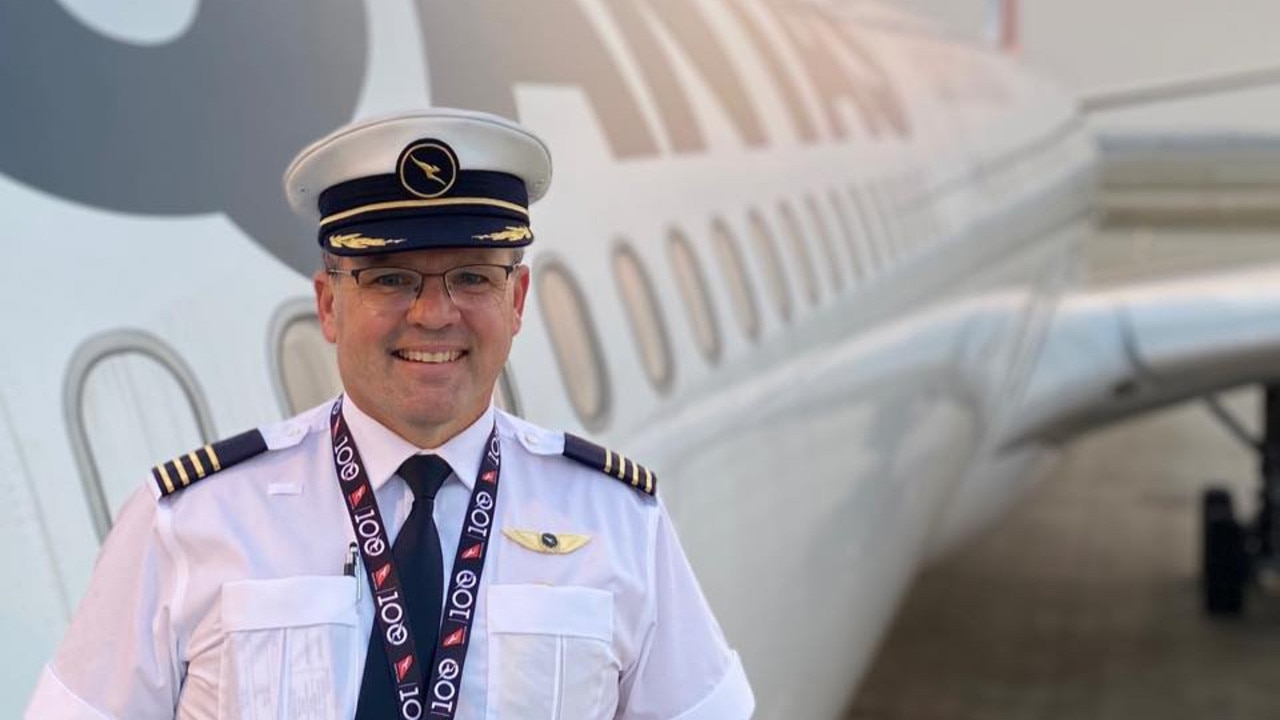Pilots demand more pay from airlines as many head to the US where wages are higher
Australia faces a pilot exodus as more than 1000 aviators leave to work in the US with smaller airlines such as Rex and Bonza feeling the pinch.

Australia’s airlines have been placed on notice that they need to pay pilots more to keep them, and enhance the profession’s appeal to young people.
The Australian Federation of Air Pilots said that in the past year, more than 1000 pilots had been issued with visas to work in the US where airlines were offering $100,000 sign-on bonuses and handsome packages.
AFAP president Louise Pole said locally, smaller airlines such as Rex and Bonza were already feeling the pinch which would become more prevalent as pilots headed abroad.
“We’re very aware of quite large numbers of Australian pilots who’ve already left to go overseas,” Ms Pole said.
“In the US we have numbers of over 1000 who’ve been issued visas in the last year and countries such as China are starting to pick back up again.
“Pilots are taking that work because they are literally much better paid than they are in Australia, so it is time for the Australian companies to acknowledge and admit there is a pilot shortage and wages and conditions need to improve.”
The warning came as Qantas and Virgin Australia pilots prepared to begin negotiations for new enterprise bargaining agreements.
After accepting pay cuts to help the airline out of administration, Virgin Australia pilots were expected to seek significant increases to bring them back into line with their peers.
Qantas pilots were considered less likely to head overseas due to the career path the airline offered, and the fact pay rates were generally the highest in Australia.
However, the group was understood to have lost a number of pilots from its Network Aviation and National Jet Systems operations.

Rex announced on Thursday its own pilot workforce had just signed a new deal, noting “almost three-quarters” of the pilot body supported it.
Close to a third of Rex’s fleet of Saab 340s are still grounded, however, due to a shortage of pilots to fly the 34-seat aircraft.
The shortage of pilots was blamed for a reduction in frequencies to nine regional routes, and the suspension of the Mildura-Adelaide route.
Ms Pole said most of the pilots heading overseas were in the “early phase of their career” which would have an impact as more pilots retired.
“The other issue is people aren’t training to be pilots as much as they used to. People don’t want to be pilots anymore,” she said.
“It’s quite a complex reason. There’s the expense involved in the training and the commitment but mostly it’s the working conditions.”
She said that “once upon a time” pilots were considered to be very well paid professionals but now many other jobs offered similar remuneration without the requirement for shift work, night work and being away from home.
“It makes people think ‘why do I need to do that when I can work nine to five and have every weekend off’. So there needs to be some compensation for that,” Ms Pole said.
Australian and International Pilots Association president Tony Lucas said a recent internal engagement survey conducted by Qantas found most pilots did not feel valued or respected.
He said the sense of security pilots used to feel, had been eroded through the turmoil of Covid-19 and industrial threats to outsource their jobs.
“US airlines are offering longer-term career pathways with better remuneration and that’s becoming increasingly attractive to Australian pilots,” Mr Lucas said.
“Anecdotally we hear that when Australian pilots move to work for carriers in the US they are often made to feel like an integral and highly valued part of the organisation rather than just another business unit.”
Qantas chief executive Alan Joyce has previously said the airline was immune from any shortage of pilots because it was the airline most pilots wanted to work for.
A pilot training academy at Toowoomba in Queensland opened in January 2020 also helped ensure a pipeline of talent for Qantas, with the airline offering 50 scholarships over the next five years.
Originally published as Pilots demand more pay from airlines as many head to the US where wages are higher



